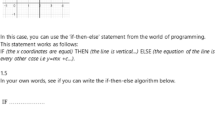Abstract
Mathematics learning and teaching continues to be a challenge in the South African education system. This challenge is observed in the poor performance of students in national and international assessments. Research suggests that teachers’ content knowledge and knowledge of teaching mathematics contribute significantly to students’ performance. In this paper, I explore educators’ understanding of counting concepts and how they go about teaching 5- and 6-year-old children to count. A questionnaire using scenarios was administered to 17 educators in the Eastern Cape to gauge their understanding of these areas. A qualitative analysis was conducted and this was followed by a thematic report. The findings of this study indicate that teacher knowledge for teaching counting is superficial. The building blocks that 5–6 year old students need to develop counting skills are not fully understood by educators. In addition, the educators demonstrated some understanding of the role of assessment in mediating learning but used assessment jargon without necessarily comprehending its meaning.

Similar content being viewed by others
References
Adler, J., & Davis, Z. (2006). Opening another black box: Researching mathematics for teaching in mathematics teacher education. Journal for Research in Mathematics Education, 37(4), 270–296.
Ball, D. L., & Forzani, F. M. (2011). Building a common core for learning to teach, and connecting professional learning to practice. American Educator, 35(2), 17–21, 38–39.
Baroody, A. J., & Gatzke, M. R. (1991). The estimation of set size by potentially gifted kindergarten-age children. Journal for Research in Mathematics Education, 22(1), 59–68.
Clements, D. H. (1984). Supporting young children’s LOGO programming. The Computing Teacher, 11(5), 24–30.
Clements, D. H. (1999). Geometric and spatial thinking in young children. In J. V. Copley (Ed.), Mathematics in the early years (pp. 109–205). Reston, VA: National Council of Teachers of Mathematics.
Clements, D. H., & Sarama, J. (2009). Learning and teaching early math: The learning trajectories approach. New York: Routledge.
Clements, D. H., & Sarama, J. (2014). Learning and teaching early math: The learning trajectories approach (2nd ed.). New York: Routledge.
Department of Education. (2001). Education White Paper 5 on early childhood education: Meeting the challenge of early childhood development in South Africa. Pretoria: Department of Education.
Feza, N. (2012a). Can we afford to wait any longer? Young children in pre-school are ready to learn mathematics. South African Journal of Childhood Education, 2(2), 58–63.
Feza, N. (2012b). Early childhood (0–4 yrs) practitioners’ views on how children learn mathematics. Journal of Modern Review of Education, 2(5), 272–278.
Feza, N. (2013). Inequities and lack of professionalisation of early childhood development practice hinder opportunities for mathematics stimulation and realisation of South African policy on quality education for all. International Journal of Inclusive Education. doi:10.1080/14/13603116.2013.855266.
Feza, N., & Diko, N. (2013). Building on using the strengths of mathematics teacher education in South Africa. Global Research Journal on Mathematics and Science Education, 2(1), 34–49.
Harris, L. (2012). Preschool should be child’s play. Mail and Guardian. Retrieved January 22, 2013, from http://mg.co.za/article/2012-09-28-preschool-should-bechilds-play.
Kühne, C., O’Carroll, S., Comrie, B., & Hackman, R. (2013). Much more than counting: Supporting mathematics development between birth and five years. The Schools Development Unit (UCT) and Wordworks, Cape Town.
Reddy, V., Winnaar, L., Visser, M., Feza-Piyose, N., Arends, F., Prinsloo, C. H., et al. (2013). Highlights from TIMSS 2011, South Africa. Pretoria: Human Sciences Research Council (HSRC). Retrieved March 24, 2012, from http://www.hsrc.ac.za/uploads/pageContent/2929/TIMSSHighlights2012Dec7final.pdf.
Richter, L., Biersteker, L., Burns, J., Desmond, C., Feza, N., Harrison, D., et al. (2012). Diagnostic review of early childhood development. Commissioned by the Presidency.
South African Qualifications Authority (SAQA). (2015). National diploma: Early childhood development. Retrieved August 11, 2015, from http://allqs.saqa.org.za/showQualification.php?id=64650.
Schmidt, W. H., Cogan, L., & Houang, R. (2011). The role of opportunity to learn in teacher preparation: An international context. Journal of Teacher Education, 62, 138–153.
Spaull. (2011). Learner preschool exposure and achievement in South Africa, Policy brief, 4 SACMEQ. Retrived January 11, 2012, from http://www.sacmeq.org.
Spaull, N., & Kotze, J. (2014). Starting behind and staying behind in South Africa: The case of insurmountable learning deficits in mathematics. Stellenbosch Economic Working Papers. Retrived December 5, 2014, from http://www.ekon.sun.ac.za/wpapers/2014/wp272014/wp-27-2014.pdf.
Starkey, P., & Cooper, R. G. (1995). The development of subitizing in young children. British Journal of Developmental Psychology, 13, 399–420.
Venkat, H., & Spaull, N. (2015). What do we know about primary teachers’ mathematical content knowledge in South Africa? An analysis of SACMEQ, 2007. International Journal of Educational Development, 41, 121–130.
Vygotsky, L. S. (1978). Mind in society: The development of higher psychological process. Cambridge, MA: Harvard University Press.
Wu, H. H. (2011). Understanding numbers in elementary school mathematics. Providence, RI: American Mathematical Society.
Acknowledgments
I would like to acknowledge the support I receive from the National Science Foundation (NRF) in working with reception class educators. Without the funding provided to me by them I would not be able to make this contribution. I would also like to state that the work presented on this paper is my sole contribution alone.
Author information
Authors and Affiliations
Corresponding author
Rights and permissions
About this article
Cite this article
Feza, N.N. Teaching 5- and 6-Year-Olds to Count: Knowledge of South African Educators. Early Childhood Educ J 44, 483–489 (2016). https://doi.org/10.1007/s10643-015-0736-z
Published:
Issue Date:
DOI: https://doi.org/10.1007/s10643-015-0736-z




